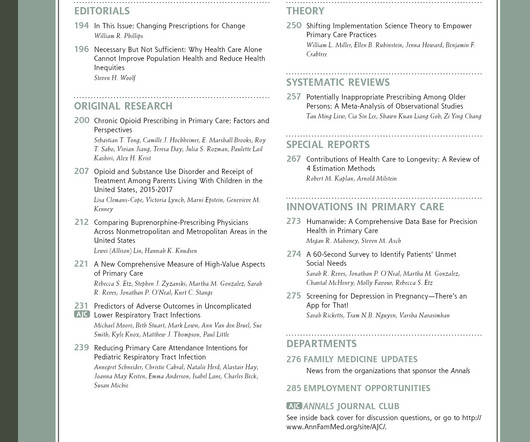Combating Food Insecurity in Minnesota
Minnesota Academy of Family Physicians
FEBRUARY 20, 2025
A Collaborative Approach Between Health Care Providers and Community Partners Food insecurity affects thousands of Minnesotans, often contributing to chronic health conditions and overall poor health outcomes. Community Partnerships: Mayo Clinic collaborates with local food banks to offer mobile food distributions.












Let's personalize your content